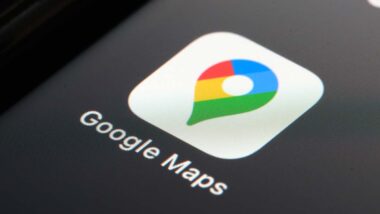Top Class Actions’s website and social media posts use affiliate links. If you make a purchase using such links, we may receive a commission, but it will not result in any additional charges to you. Please review our Affiliate Link Disclosure for more information.

Update:
- Google agreed to delete and/or remediate billions of data records containing the private browsing histories of a class of Chrome Incognito users, per a settlement first revealed in December.
- The agreement resolves claims Google covertly tracked the internet searches of users who thought they were browsing privately with Google Incognito mode, according to a motion for final approval of the settlement.
- Google also agreed to remove private browsing detection bits and maintain a change to the Chrome Incognito browser allowing a user to block third-party cookies by default.
- Members of the class will retain their right to file claims against Google individually for monetary damages per the settlement agreement.
- The Google Incognito mode users originally sought $5 billion in damages.
(June 4, 2020)
Three Google Chrome users have filed a class action lawsuit accusing Google and its parent company, Alphabet Inc., of collecting user data even when they browse in private mode.
The Google tracking class action lawsuit was filed by Chasom Brown, Maria Nguyen and William Byatt, who say they all are Google subscribers who browsed the internet in “private browsing mode” sometime between June 1, 2016, and the present.
They allege Google collected their data while they were browsing in private mode and say the company similarly collected the data of many other consumers who were browsing in private mode.
According to the plaintiffs, data is collected even when browsing in Google Incognito mode, or when consumers control privacy settings. Allegedly, this violates consumer privacy as well as federal wiretap laws.
The Google tracking class action lawsuit asserts Google effectively tricks users into thinking they have control over how much of their data is shared with Google and other parties.
The plaintiffs argue that Google does this by giving users the option to browse the web in “Incognito” or “private” mode, a mode in which the site will not intercept communications or information.
Similarly, Google allegedly offers users the opportunity to edit their privacy settings to determine how much information is being shared, or delete past browser history.
However, the users assert that this representation is a false one, because users have no real control over how their data is used. Allegedly, Google does not turn off Google tracking when users browse in private mode.
Some info that Google tracking captures reportedly includes IP address, browser information, information about the user’s device and content from the webpage being viewed.
Allegedly, Google makes money by collecting and selling data. The Chrome browser users explain many sites use Google Analytics, a tool that tells website managers about their site traffic, including how often their site is visited and the demographics of people using their site.
Though there is a free version of Google Analytics, users of the program can purchase a premium version that gives them access to more specific information about their users.
To use Google Analytics, a user must embed Google’s code into the site’s existing code. Then, when the site is loaded through a browser like Google Chrome, the site’s information is sent to Google and its servers in California. Allegedly, this information includes the user’s IP address, URL address and the particular page of the website that is being visited.
According to customers, this is almost always done without the web user’s knowledge.
Allegedly, Google does not require websites to tell users they are using Google Analytics, nor do they require sites to inform customers about how that data will be then used.
The Google Chrome privacy class action lawsuit then goes on to explain that not only do customers usually not know that Google Analytics is collecting their data, there is no effective way for users them to avoid it being used.
Similarly, Ad Manager also allegedly runs automatically and involves Google code being embedded into a website’s own code. The users say Google’s code is the site’s own code. This makes ads pop up for Google’s ad customers. Additionally, Ad Manager reportedly sends personal information from site users to Google, allowing Google to track visitors and website traffic.
The plaintiffs say this data is sent to Google every time a user opens a site using Ad Manager code. They claim Ad Manager functions much like Google Analytics in this way. Similarly, Google does not require sites to inform users that they are using Ad Manager, the Google tracking class action lawsuit says.
The users argue Google justifies these policies by saying it acts as a vendor for websites running Google Analytics and Ad Manager. However, the plaintiffs assert, this is not true. Google, not the website on whose behalf Google purportedly collects this data, allegedly owns the data collected.
The plaintiffs argue Google Analytics and Ad Manager are just two components of Google tracking users’ information without their knowledge.
A class action lawsuit alleging similar claims has been filed in Canada.
What is your preferred search engine? Why do you use it? Share your thoughts in the comments below.
The Google users are represented by Mark C. Mao, Sean P. Rodriguez, Alexander J. Konik, James Lee and Rossana Baeza of Boies Schiller Flexner LLP.
The Google Incognito mode data collection class action lawsuit is Chasom Brown, et al. v. Google LLC, et al., Case No. 4:20-cv03664, in the U.S. District Court for the Northern District of California.
Don’t Miss Out!
Check out our list of Class Action Lawsuits and Class Action Settlements you may qualify to join!
Read About More Class Action Lawsuits & Class Action Settlements:















190 thoughts onGoogle to delete private browsing data as part of Incognito settlement
I use Google. My information has been leaked but AT&T breech. I am so stressed dealing with this and keeping up with my information to protect atleast my bank account
Please include me in the lawsuit I have been using incognito mode after my identity was stolen for the 2nd time now I know why!!!
How can I receive information on being added to the list..putting add me, has never worked here…
I use incognito all the time on Google
I’ve always have had Google Chome and use Infiniti. Then when you try to block ads they still pop up. Plus my info has been compromised on the Dark Web according to reports sent to me FROM GOOGLE. Please include me!
Use Infiniti not Infiniti. Spellcheck is a menace!!!
INGONITO!!! Not Infiniti!!!! Spellcheck wrong again!!!